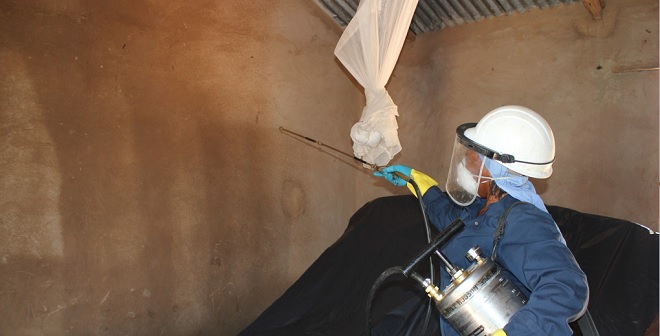
Budaka, Uganda | THE INDEPENDENT | Budaka district will next month embark on indoor residual spraying. The one month exercise which will begin on March 1 and end on April 1 will target more than 62,000 households across the entire district which comprises of 20 sub-counties.
The Budaka district indoor residual spraying program focal person Richard Muko says the district has gazetted 14 IRS sites across the district where 477 spray operators have been recruited and are undergoing five days of intensive training.
Budaka district has been experiencing a high prevalence of malaria. In 2015 before the IRS program, the malaria prevalence in the district stood at 56% but drastically went down to 15% in 2018, but shot up again in 2020 to 18%.
“This implies the IRS program is more effective than mosquito nets and this could be witnessed in the just few years ever-since the program was launched. Although both are targeting free-Uganda malaria,” Muko said.
Dr Elisa Mulwani, the Budaka District Health Officer says that despite malaria being the number one killer disease in the country, the indoor residual spraying programme has tremendously contributed to the reduction of malaria in the district.
“The malaria prevalence drop in the district is due to scaling up treatment services, distribution of insecticide-treated mosquito nets and indoor residual spraying in the district which has led to the drop. Even with this new intervention, the prevalence will go down completely,“ he explained.
Sam Muloni, the Budaka district LC V chairperson asked the community to embrace the programme aimed at fighting malaria.
Several families were initially skeptical about the drugs being used to spray, saying that the insecticides had side effects.
The Budaka Resident District Commissioner Tom Chesol warned residents against sabotaging the exercise.
*****
URN
 The Independent Uganda: You get the Truth we Pay the Price
The Independent Uganda: You get the Truth we Pay the Price



